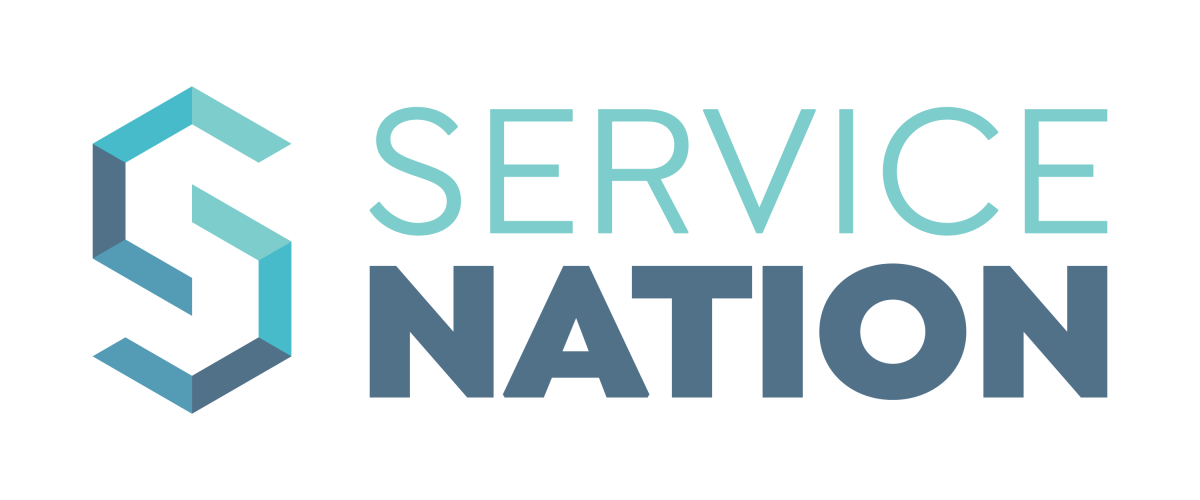Greetings everyone, this is David Heimer, welcome to Profiles In Prosperity. Today, we get to talk with Tyler Kime. Tyler is the general manager of Standard Heating and Air. Standard is a large, very successful company located in Birmingham, Alabama. Before getting into our industry Tyler earned a degree in finance and he spent a few years in banking. Tyler is a very smart, interesting guy. I’m not the only person who thinks that. Last year Tyler was named to our industry’s prestigious 40 under 40 group, which recognizes the young leaders we’re going to be relying on in the future. So Tyler Kime, welcome to Profiles In Prosperity. And thank you for taking the time to talk with me. Tell us a bit about Standard Heating and Air Conditioning.
We have evolved over the years, but primarily our focus is service and replacement. So we do about 85% residential, 15% commercial, primarily again, servicing replacement. We also do plumbing and we also do installation and energy audits as well. And actually in the mid-nineties, my father had sold the company and went public with a group called Comfort Systems USA. And one of the big consolidation companies ended up buying the company back in 2003. And then I came in 2005 and have been working here ever since and really enjoying it.
David Heimer: All right. So you didn’t come directly into the business. How did you end up coming back to it or deciding to join it?
Tyler Kime: That’s right, growing up, I didn’t know how an air conditioner worked. I had no idea, it was one of those things that I guess my dad would always kind of kept things separate, work and family. I did work at the shop in high school, cleaning, sweeping the shop, mowing the yard in the summertime. But didn’t really know, or understand anything about the business. My father had and again in the mid-nineties when I was in high school, had sold the company. So at that time I really didn’t know what I was going to do. Didn’t really know like most of us don’t. So I went to college, got a degree in finance, graduated in 2003 and went into the banking world for a couple of years. And in 2005, I had been in banking for two years and wanted to come back to Birmingham. So I didn’t know what I wanted to do; I interviewed with some banks in Birmingham and then interviewed with my father as well. And I just always kind of felt like maybe that was my place to be. And I love the opportunity to be able to work with my father and he and I would get along really well. So I just kind of made that judgment, and thankfully enough, I did because the banking sector took a big turn right after 2005. So I guess I made a good choice there.
David Heimer: Yeah good timing.
Tyler Kime: Yeah very good timing. And you know, my dad had kind of shared a little bit about financial status as a business. And what I learned in banking was that if you have money, they’ll lend it to you. And if you don’t have money, they won’t lend it to you. So most of the people coming to ask for money, didn’t really have it and the ones that didn’t need it, are the ones they wanted to give. So it was kind of an interesting dynamic, but I just decided I would get out of the banking sector and start to work for my father.
David Heimer: Very nice. So one of the things I think is really interesting is that I’m not sure how much you guys thought this out in advance. But it ended up being a really carefully engineered growth of your participation in the company. You didn’t join the company as a manager, you started out pretty much near the bottom of the company and got exposure to everything in the company. So, tell us about that. Because I think it’s really interesting. I think it’s a great model for other people.
Tyler Kime: Sure, I’d be glad to the way we kind of set it up was you know, again, I was in banking, so I was wearing a suit every day. And then when I came to work here at Standard, I started as a helper on an installation front, which is basically the entry level position in the company. And, you know, again, I didn’t know anything about air conditioning or heating or anything. So that was the right spot for me to start. And my father and I had this kind of agreement basically, we just kind of said, hey, you’ve been doing this a long time. He knows what’s best and he’s the boss, he’s the owner of the company and I’m just an employee.
So whatever he said went, and it was one of those things that I think is the best way to go about it because a lot of times I think kind of want to get in and you think, you know everything and I didn’t, and just wanted to start from the bottom and kind of learned my way up. So I did, started out with the helper on an installation truck, probably needed to spend a little more time in the field and I never got to be a service technician, which probably would have been a little helpful. But I was on an installation truck for a while, came to the office, did accounts receivable and other office duties. And then I went back in the field and I was an assistant to our sales manager and construction salesperson. So I started to get into how we sold jobs, how we installed jobs on the construction side, which was mostly high-end remodel work, and started going to classes, learning the trade. Basically, a lot of the technical side of things, which oddly enough, in my years at college, I had taken several physics courses and other courses like that, that I actually came back to use later on.
So it was kind of one of those funny things that, you know, thermodynamic laws came back into play. So, I did that for a long time and then eventually took over the construction, sales and installation on that, and did that for a few years. And then after that, we went to a conference and got introduced to home performance. And I kind of took that as a way to grow our company and to learn more. And honestly, it’s probably the best thing I ever did. Kind of jumped out on a limb and said, well, I’ll be the head of this. Let me go learn all this and try to implement our company. It’s not easy, but there’s so much information that can be gained by learning the building science over just the basics of heating and air conditioning.
And that really, I think helped me establish myself with the knowledge needed to basically be able to hold my own. The good thing about our company is we have a great culture. We have lots of people who’ve been with us a long time that respect my father and the way we did it by bringing me up slowly, I think really helps. You know, you can’t just come in and be a manager and tell people what to do. It took a long time before I had anybody underneath me. I mean, literally, eight years or so before I was managing anybody or telling anybody what to do. And so I think that helped gain the respect of those I was working with. And oftentimes, you know, I think that means a lot to those guys that, hey, I’ve been out there. I mean, I’ll still to this day, jump out there and work on them if it’s needed, I won’t hesitate to jump into a job. I’m not the best person for the job. I have soft hands, I haven’t had enough field experience, but I do know enough to help those guys and also get the respect that is needed to lead.
David Heimer: Very nice. So your dad is president and you’re general manager. Now, what is his involvement in the business at this point in time?
Tyler Kime: He just hit 40 years with the company this past year. And luckily we have the ship running pretty smoothly right now. So I said before he comes to the office one day a week on Thursdays, which is typically when we have our managers meeting. He’s also spending some time down in Florida with my mother and enjoying playing some golf and pickleball. If you know what that is, most people haven’t heard of it. But he’s enjoying that this past year. So, I took over as general manager roughly about two years ago and he has slowly started cutting back his hours in the business. He and I talk almost daily and I still want that relationship there with him. Because he and I really think alike. He’s still a wealth of information for me in my maturity as a leader. So he comes in, like I said, once a week until goes around, talks to everybody in the office and he’ll read the emails from afar and he’s still very involved. It’s one of those things that it’s a very good set up for him. He can step away but jump right back in if he feels like he wants to.
David Heimer: Very nice. And one of the things that strikes me about this is your maturity in it. I mean, you joined a couple of years out of college and you know, I think back to me and a lot of other people I know at that age and sure, we recognize that we didn’t know everything. But we were really eager to take over and start running things, you know, even, we didn’t know what we didn’t know, but we wanted to get that responsibility and start implementing our own ideas. You seem to be able to suppress that to some extent. Was that hard for you or did you just have the maturity to recognize that was not appropriate?
Tyler Kime: Yea, it wasn’t easy. I would definitely say that that was something that just kind of had to say, Hey, let’s do this. What made it easy for me was that I knew the relationship I had with my father. I knew what he had created here and I didn’t want to change any of that right away or even change it now, just make light tweaks to. And so I think that helped a lot. Having the confidence, knowing that whatever he said was right for me. And again, I say, luckily, you know, we have a very good relationship. We rarely ever argue or fight so to speak, ever.
I’ve heard several cases where that may not be the case with fathers and sons. I’m sure people have heard horror stories about how that goes and how family businesses can be. And I didn’t want that to happen. So I think just the respect I had for him and also at the same time, the respect he showed for me, I think that’s also important. I don’t think it is just a one-way type of showing of respect that helps that kind of relationship get fostered. So I think that helps along the way and helps us to grow our relationship. And you know, it took me a while to really start kind of asserting myself and my opinions. But part of me was, I didn’t feel like I had the knowledge or the experience to really be taken seriously at that point.
So it took about, I would say seven, eight years before I really started kind of dipping my foot into management decisions, even though I wasn’t a manager at the time I was, I started getting included into the meetings and then the direction of the company and was able to bounce ideas off, never trying to impose what I want it to be done. Because it wasn’t my turn, so I think it does take a little bit of humility to do that. And I guess knowing that in the future, I would have that opportunity also helped out knowing that at some point in time you know, it would be my choice and it would be my time to make those decisions, but right now it’s not. So I think that helped out. And to be honest with you now, being the helper on the truck was quite easy. You know, all I had to do was show up in the morning and go to one job a day. I didn’t have any phone calls. I didn’t have to take care of anything. So that was kind of nice, you know.
David Heimer: It wasn’t a bad life.
Tyler Kime: And I got off at four every day and didn’t have to worry about, you know, anything else beyond that. And it was kind of nice, that kind of how I had a lot more freedom back then. That’s just part of it, but I got to learn and you know, that’s the great thing about this industry and this business is it’s ever evolving, it has changed so much in the last 10 years even, and won’t stop. So that’s what’s kept me going.
David Heimer: That’s a great story. I think it’s instructive for other people. I appreciate you sharing it with us. One more question for you, what keeps you up at night? What do you worry about?
Tyler Kime: You know, I’m very fortunate. You know, I hear a lot of people talk about what keeps them up at night and makes them worry. And I can’t say that I really stay up late at night worrying about a whole lot. I guess the biggest thing is just the fear of the changes that we’re making. We’re trying to propel ourselves and stay ahead of the competition. So if anything, it’s just making sure that I don’t miss something. I don’t want to just do the status quota. I’m always wanting to change, learn new ideas, but also make sure that they fit what we do here at Standard and not what somebody else has done. I think there’s great ideas, we’ve got so much information and knowledge from our AB group and the whole Service Nation Alliance that’s been invaluable. But there’s lots of different ideas out there that aren’t going to work for Standard. And there’s a lot of stuff we do here at Standard that aren’t going to work elsewhere.
So we just really try to focus on making incremental changes, nothing too large, but making sure we’re always working, you know, keeping an eye on what’s out there you know, everything’s changing so quickly. You can’t rush to decisions. So I guess that’s probably the biggest fear is just making sure that what decisions we make are the correct ones and just that self-doubt of once you make a decision. I’m an analytical thinker so I overthink everything, and so when I do make a decision, I overthink the decision I just made too {inaudible 13:15}. So it’s a weakness I would say and what can keep me up sometimes and what I think about in the shower every morning before I come to work.
David Heimer: Alright. I sure appreciate your time. This has been great. And look forward to talking to you again in the future.
Tyler Kime: Well, thank you so much and thank you for the opportunity, David.
Outro: We’re always looking for good ideas and interviews for our podcast. If you have an idea or maybe you think you should be interviewed, just shoot an email to profilesinprosperity@serviceroundtable.com, that’s profilesinprosperity@serviceroundtable.com. If you think what we’re doing has any value, it would be very helpful if you would give us a great rating on iTunes. Thanks for your support. We hope to see you again soon. Bye.





 (877) 807-0869
(877) 807-0869 Member Login
Member Login

